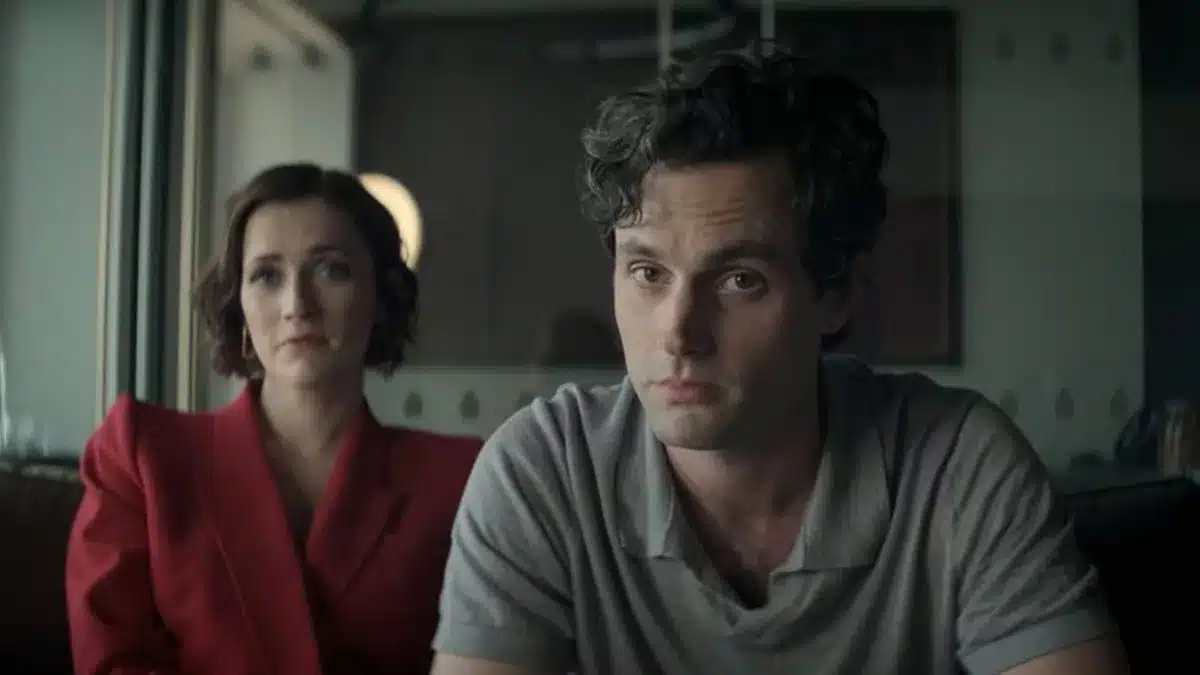You, the Netflix series that made us all feel a little too obsessed with a charming stalker, has finally come to an end with season 5, and what an ending it was.
Fans who stuck through five seasons expecting closure were left with a bitter taste in their mouths. The show, which had once been a guilty pleasure, has devolved into a mess of poorly thought-out plot twists and an identity crisis that its creators couldn’t quite solve. In the final season, Joe Goldberg (played by Penn Badgley) still doesn’t know if he’s a hero or a villain – and neither does the show.

When Joe first appeared on screen, his stalking and obsession were undeniably creepy, but his charm and twisted worldview made him oddly captivating. The show leaned heavily into the idea of him being a dark antihero. But in this final season, Joe’s character seems to have morphed into something far less intriguing and far more frustrating. Is he a misguided, misunderstood soul or just a sociopath who somehow manages to charm his way into our hearts? That question was never fully answered, and that’s part of what makes this ending so unsatisfying.
Joe’s final arc takes him back to New York, the setting where everything began. He’s married to the wealthy Kate Lockwood (Charlotte Ritchie), and they’re living a seemingly perfect life. But as expected, Joe can’t stay out of trouble for long. He starts obsessing over a new woman, Bronte (Madeline Brewer), and the familiar pattern of stalking and violence begins again. This time, Joe isn’t hiding behind a false identity; he’s a public figure. He’s not pretending to be someone else, but the show never truly explains why this change of scenery should make us believe Joe has truly “changed.”
The season tries to present Joe as a reformed man who is using his power and influence for good. But honestly, this new version of Joe feels just as ridiculous as the old one. He goes from saying how great it feels to “rid the world of assholes” to getting tangled up in an emotional mess that’s been done to death in previous seasons. The show builds a weak contrivance to try to redeem Joe, but it falls flat. There are attempts to make us think that Joe might finally realize the damage he’s caused, but these moments are short-lived and lack the emotional weight that would make us believe in any transformation.
The satire that made the first few seasons enjoyable has been mostly replaced by convoluted plots and endless twists that don’t really go anywhere. There are some attempts to revisit the dark humor that made the series fun in the first place, but these moments are brief and fleeting. One minute the show is poking fun at the ultra-wealthy, and the next, it’s taking itself too seriously, trying to make us believe Joe can truly be a sympathetic character. That’s where the show completely loses its audience. By the time we reach the finale, Joe’s journey seems less about growth and more about giving fans a few final, superficial moments to hold on to.

The biggest issue with You’s final season isn’t just the repetitive plot twists or the lack of any real resolution for Joe’s character – it’s the way the show treats its audience. The final scene, which is supposed to wrap up Joe’s arc, does so in a way that feels insulting.
Instead of giving viewers a satisfying conclusion, the show points the finger at us, suggesting that the real problem wasn’t Joe all along, but rather the way we consumed his story. This ending tries to pass itself off as a smart commentary on the audience’s own complicity, but it feels more like a cop-out than anything else.
You’s Season 5 could have been an opportunity to finally address the complexities of Joe’s character and the show’s moral ambiguity. Instead, it throws all of that away for a lazy, unsatisfying conclusion that feels more like a slap in the face than a fitting goodbye to a character we’ve followed for years. The show ultimately never solves the question it set out to answer: Is Joe a hero or a villain? And perhaps that’s the greatest tragedy of all. For a series that spent so much time exploring obsession and morality, it couldn’t be bothered to give its audience a payoff that felt earned or meaningful.
- Josh Allen Can’t Stop Praising Fiancée Hailee Steinfeld’s New Film Sinners - April 27, 2025
- Emma Chamberlain’s Shower Habit Is So Weird, It’s Actually Genius - April 27, 2025
- Joe Jonas Gets Candid About Screen Time, Fatherhood, and Finding Balance - April 27, 2025

